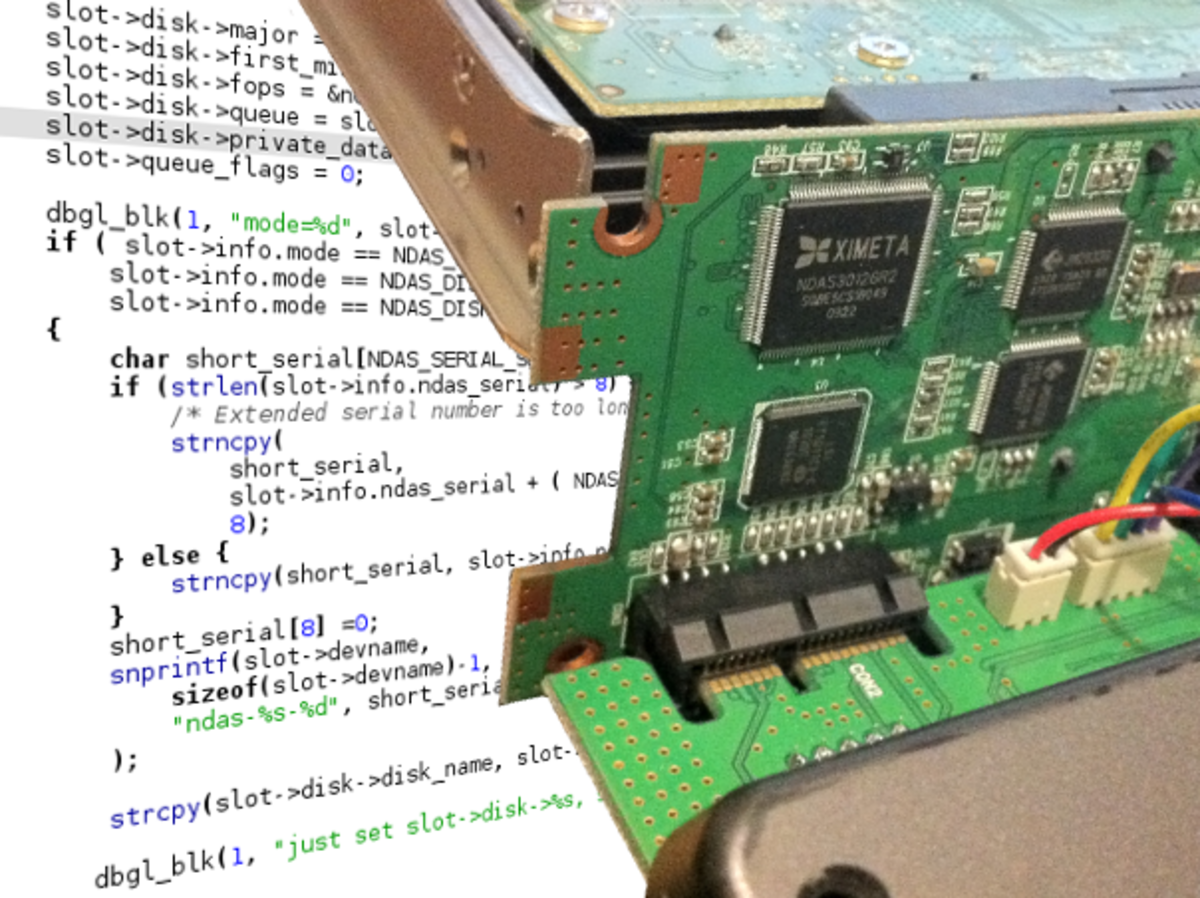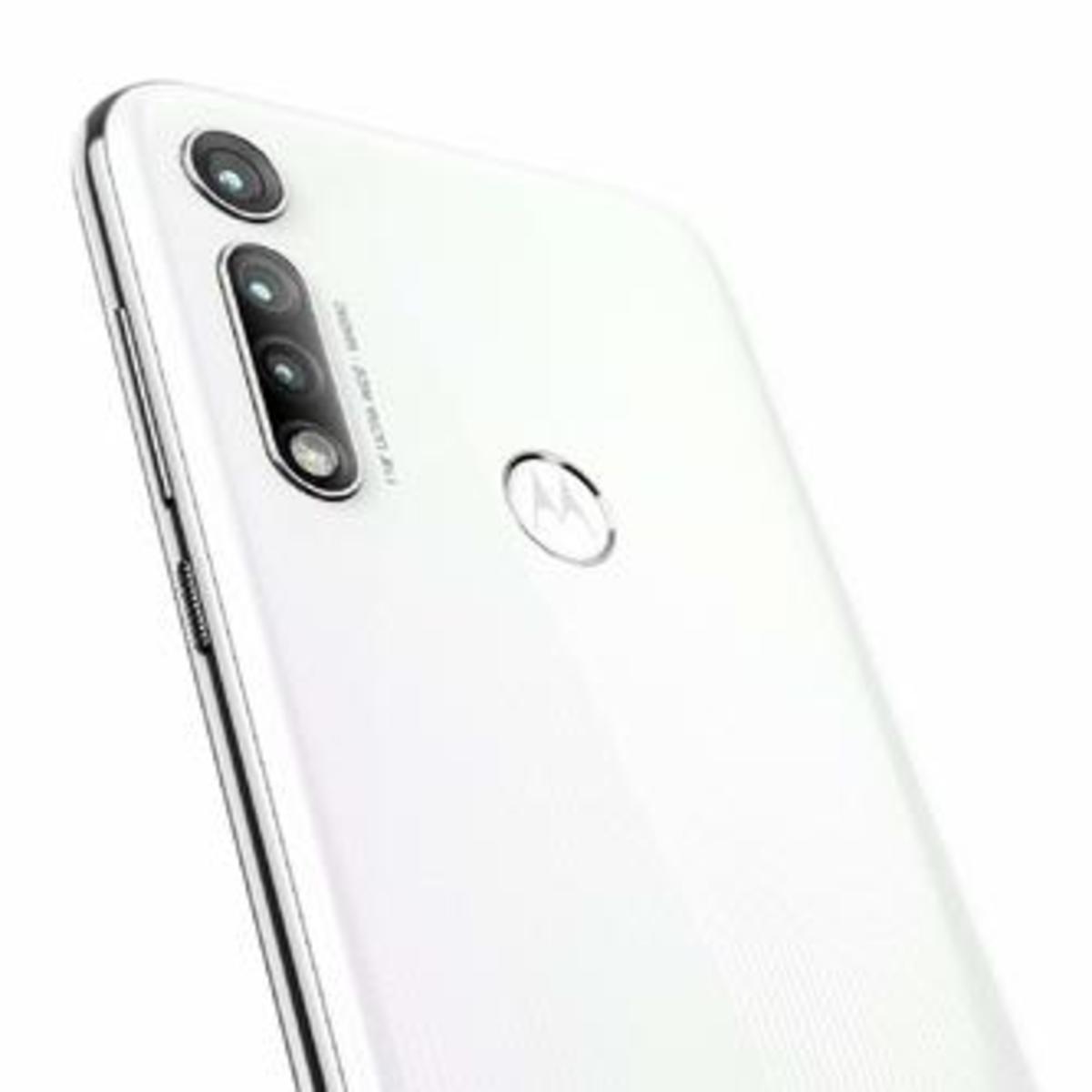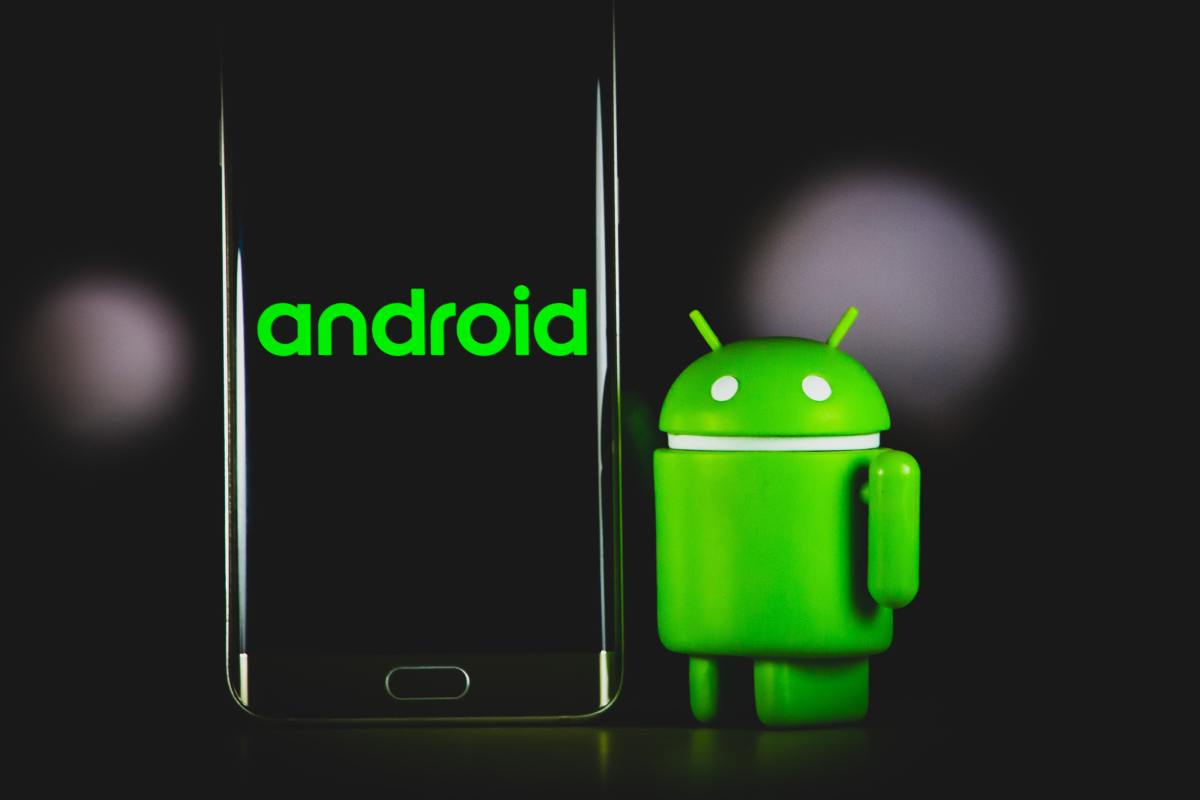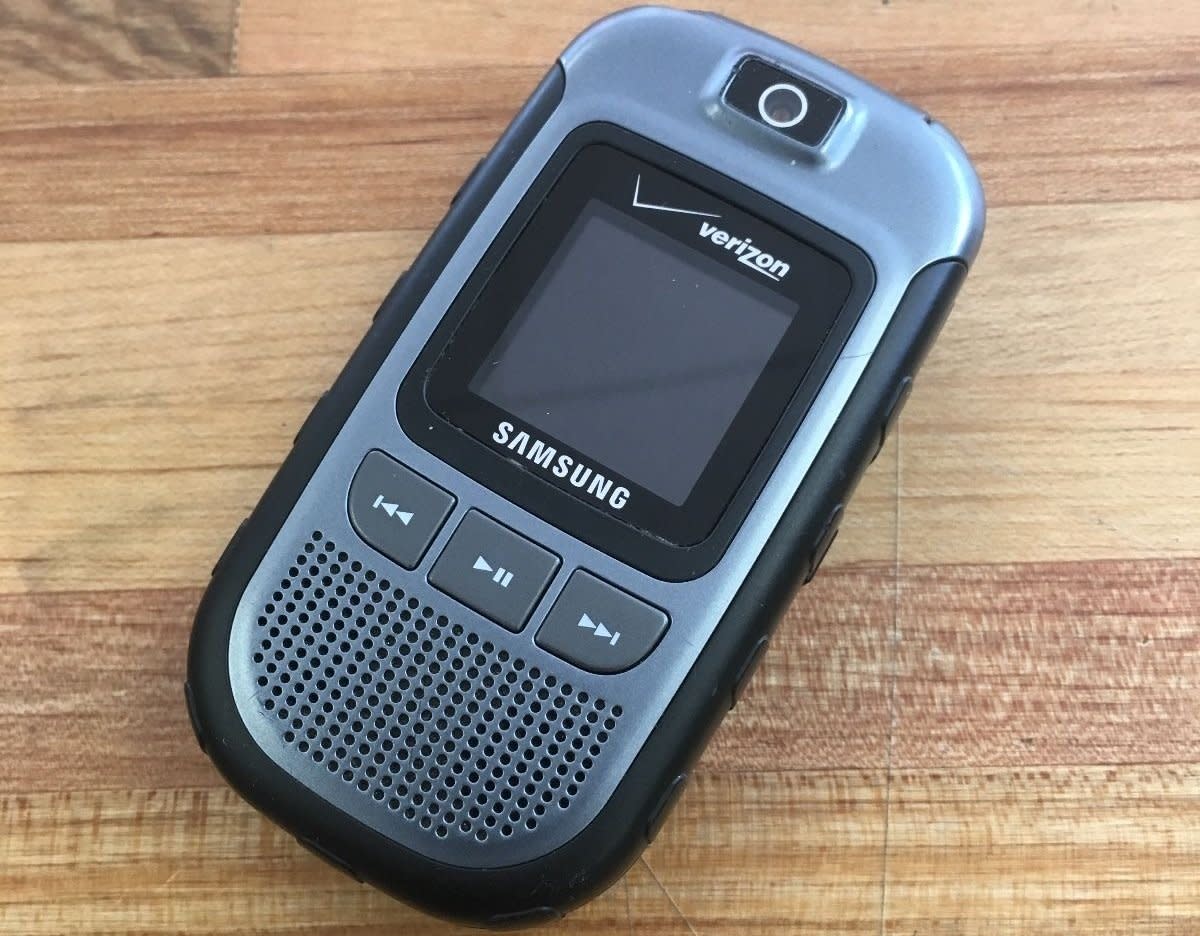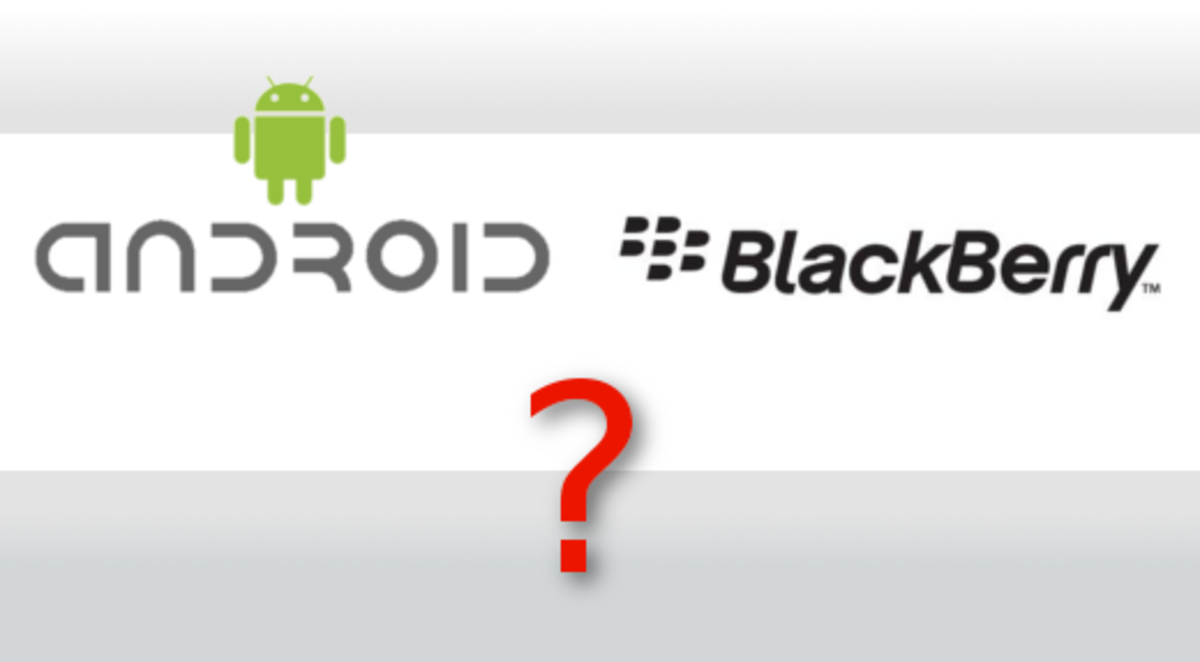- HubPages»
- Technology»
- Communications»
- Smartphones
Nokia Lumia 920 vs. HTC Windows Phone 8X: Which Smartphone Has Better Performance, Hardware, Software and Features?
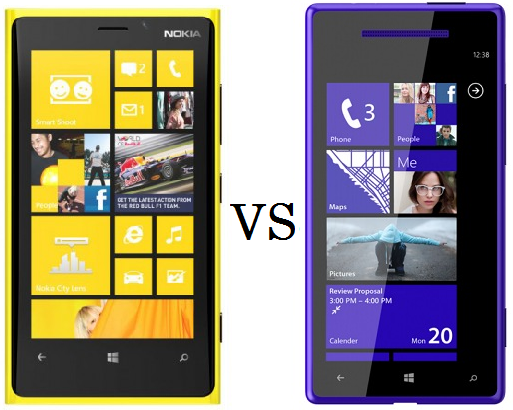

Windows Phone 8 is the latest version of Microsoft's operating system for smartphones. It has the real potential to make Windows Phone a worthy contender against the two most dominant mobile device platforms Google's Android and Apple's iOS. Windows Phone has always been about speed, responsiveness, unique and intuitive user experience and controlling the device quality. Additionally the new operating system shares the same kernel as the desktop x86 version which is supposed to make it much more attractive for developers and should provide a more seamless experience. But until the developers don't start embracing the system the Windows app store will remain behind Android and iOS.
So the battle for the high-end Window Phone smartphone is already on. Let's dive right in.
Hardware And Performance
Microsoft is very specific in what a Windows Phone 8 device could be, which has led to the two smartphones having very similar internals (running on identical processors paired with the same amount of RAM). Additionally the two competing Windows Phone 8 flagships have similar plastic shells with vibrant color options. But the plastic used in the two builds is by no means the same with the HTC not being as glossy and therefore, slippery as the Nokia. On top of this, here is a possibly key difference in the physical dimensions of the two devices with the HTC 8X having a slightly smaller screen size. This leads to the phone being a bit narrower, which might prove to be a great advantage. On top of it all, the HTC is actually thinner and lighter which makes it much more comfortable for stuffing into pockets and holding especially for people with smaller hands.
So in the end, it's two devices that are pretty evenly matched and we would expect this to become the trend for Windows Phone devices due to the tight restrictions Microsoft are putting on the hardware. This will surely make it quite hard to stand out in this market segment and competition will probably only become stiffer as time goes by especially now when Samsung's offering - the Samsung ATIV S - is also out.
Technical Specifications (Bold means better)
Nokia Lumia 920
| HTC 8X
| |
|---|---|---|
OS
| Windows Phone 8
| Windows Phone 8
|
Processor
| 1.5GHz Dual-Core Qualcomm Snapdragon S4
| 1.5GHz Dual-Core Qualcomm Snapdragon S4
|
RAM
| 1GB
| 1GB
|
Size
| 5.11 x 2.79 x 0.42 inches / 130.3 x 70.8 x 10.7 mm
| 5.21 x 2.61 x 0.4 inches / 132.3 x 66.2 x 10.1 mm
|
Weight
| 0.41 pounds / 185.0g
| 0.29 pounds / 130.0g
|
Display Size
| 4.5 inches
| 4.3 inches
|
Display Resolution
| 768 x 1280 (HD+)
| 720 x 1280 (HD)
|
Display Aspect Ratio
| 15:9
| 16:9
|
Display Technology
| (PureMotion) IPS LCD
| Super LCD 2
|
Pixel Density
| 332
| 342
|
Screen Protection
| Corning Gorilla Glass 2
| Corning Gorilla Glass 2
|
Internal Storage
| 32GB
| 16GB
|
Expandable Storage
| No
| No
|
Battery
| 2000 mAh
| 1800 mAh
|
Wireless Charching
| Yes
| No
|
Rear-Facing (Main) Camera
| 8.7MP PureView (with Carl Zeiss Tessar lens)
| 8MP
|
Flash
| Dual LED
| LED
|
Video Recording
| 720p
| 1080p
|
Dedicated Physical Button (Camera)
| Yes
| No
|
Front-Facing (Secondary) Camera
| 1.2MP
| 2.1MP
|
Location
| A-GPS & GLONASS
| A-GPS & GLONASS
|
Sensors
| Compass (Magnetometer), Proximity, Ambient light, Gyroscope, Accelerometer
| Compass (Magnetometer), Proximity, Ambient light, Accelerometer
|
NFC
| Yes
| Yes
|
Bluetooth
| 3.1
| 2.1
|
Tethering / Mobile Hotspot Capability
| Yes
| Yes
|
Noise Cancellation
| 3 microphone setup
| No
|
Available Colors
| White, Black, Yellow, Red, Gray
| Yellow, Red, Black, Blue
|
Expected Release
| November 2012
| November 2012
|
Display
Both of the devices are fitted with high quality LCD displays with similar resolutions. But they are not really the same and there are small differences here and there. First of all, Nokia Lumia 920's display is a bit larger with a resolution larger only in the width as far as the number of pixels go. In other words it has the same height in pixels but different aspect ratio. HTC 8X, on the other hand has a slightly higher pixel density, which is supposed to make things look a tiny bit more crisp. So Nokia's additional screen real estate will most probably provide little to no user experience enhancement while the trade-off HTC made leads to a narrower phone that might prove to be much more comfortable for many (especially people with smaller hands or people that want a smartphone easy to pocket). But Nokia have two more tricks up their collective sleeve regarding the display. First of all, the Lumia 920 (like its predecessor the Lumia 900) delivers a great anti-glare performance which makes this smartphone much easier to read in direct sunlight than the HTC. Additionally, if you turn on the sensitivity of the touchscreen, it becomes possible to operate it with your nails or with gloves, which might actually be a killer feature for people hoping to use their smartphones out in the cold. It's also good to mention that both screens have high-quality protection with Corning Gorilla Glass 2.
Camera
As long as the rear camera goes, we came into this review expecting a two heavy hitters. Both Nokia and HTC have already spent some time bragging about the camera performance on their Windows Phone 8 flagships.
Let's start with the Lumia which has a 8.7MP PureView sensor that besides a higher pixel count has a name brand (Carl Zeiss) optics. With the Nokia 808 PureView 41MP camera offering the greatest camera on smartphone by far, many people were hoping to see at least some of this bang at least on the Nokia Lumia 920. The CMOS sensor in the Lumia Windows Phone 8 flagship has shift stabilization, back-illumination, two-stage shutter and allows manual iso selection and white balance which is all nice bells and whistles, but compared to the 808 is feels mediocre. It does a pretty decent job and it's performance is good even in low light. It's dedicated physical button make the camera easy to use and it provides better quality than many other competing devices.
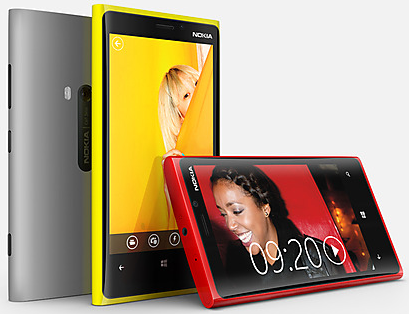
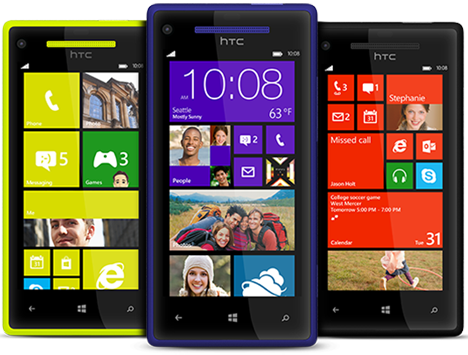
On the other hand HTC did their best to play up the 8x and its camera. They brag about the HTC 8X having a dedicated camera chip and it's 8MP sensor is not really inferior to the one on the Lumia 920. The chip eliminates almost all of the lag that we have grown accustomed to in smartphone. The photos taken with the HTC 8X usually look pretty nice, but you can also come across a few not so successful ones. Additionally, HTC's Windows Phone 8 flagship comes with a much better front-facing camera - 2.1MP that also provides a much wider angle that is going to be a welcome feature for video conferencing, while the Lumia 920 boasts a more modest 1.2MP camera sensor on it's front side.
Software
As long as the operating system and software go, the fact that both devices are running Windows Phone 8 makes them pretty similar. It's safe to say that Microsoft's Live Tiles will look and function much the same both on the Nokia Lumia 920 and the HTC Windows Phone 8X. We could say that Nokia is already at least one step ahead with the development of some important proprietary software features especially with navigation like Nokia Maps, Nokia Drive, and Nokia City Lens. HTC are trying to compensate for this will nice social integration and little perks here and there. If the Windows Phone developer ecosystem finally takes off, Nokia's home-grown software will prove to be a smaller of an advantage. Despite the fact Windows Phone 8 doesn't sound bad on paper, Microsoft still has to do the crucial work of attracting enough third-party app builders to sell in its mobile app store and provide as diverse and extensive software offering as Apple's App Store and Google Play. For now Microsoft are doing pretty well with most of the top 50 apps from the other app stores being already available for Windows Phone. If this effort continues and more and more useful apps become usable, Windows Phone 8 might become a competitor.
Another area for a toss up between the two devices is sound quality. HTC already has a long standing tradition in enhancing its sound quality with Beats Audio and Nokia have tried to match that with the option of a Dolby enhanced sound on the Lumia 920. It also offers the pleasant functionality of Nokia Music that also lets you store music for offline listening.
Additional Features
Since the devices are running the same operating system on very similar internals, many customers might base their purchasing decision on the details. While both devices have NFC, assisted GPS and GLONASS, a standard array of sensors and mobile hotspot capability, there are things that are different for the two Windows Phone 8 flagships. So lets review what each device has going for itself.
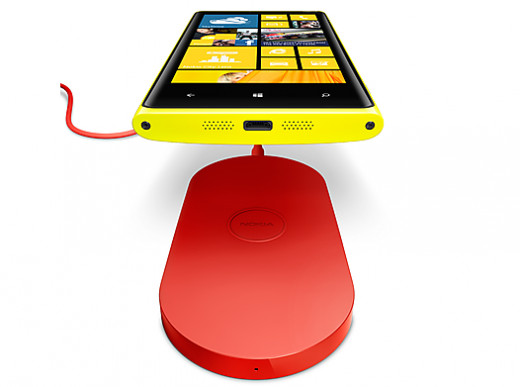
Nokia Lumia 920
Nokia Lumia 920 looks like a great device and the engineers and designers from Espoo made sure it has what to brag about. On the sensing and orientation level, one thing it has that the HTC 8X doesn't is a gyroscope. It might not seem like much, but if you are planning on using your smartphone for gaming or virtual reality, this is an important feature that makes motion game control much smoother and much more responsive. Besides the fact that it's a smartphone capable of performing hundreds of different tasks, it's also meant to make calls and Nokia have implemented a three microphone noise-cancellation setup that is supposed to significantly increase the quality of the calls. Smartphones also consume a lot of power and the phone with the larger battery capacity is the Lumia 920 as well (2000 mAh versus the 1800 mAh of the 8X). And to make power issues more futuristic it also supports wireless charging. On top of all the Finnish-designed flagship supports a newer version of Bluetooth. It would have been nice if Nokia had gone with 4.0 instead of 3.1, but at least they didn't go as low as 2.1 like HTC, right? And last but not least provides double the internal storage of the HTC 8X.
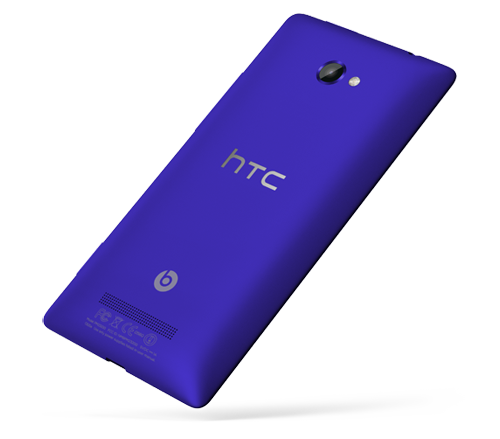
HTC Windows Phone 8X
In the end, besides Beats Audio and a smaller size and weight, the HTC couldn't offer more additional extras that we haven't mentioned yet. It's a good choice, but it's not really so much about the bells and whistles as the Nokia Lumia 920.
Final Verdict And Notes
First of all, it's important to point out that choosing a smartphone is a personal thing and it's really important that the user would feel as comfortable as possible with the piece of technology they are going to carry around everywhere they go until the next upgrade. So with that disclaimer out of the way, I could safely say that for now the Nokia Lumia 920 seems to be the more attractive phone by a small bit in spite of the devices being so similar. As of now it has a bit more to offer in almost every department and with dominance or advantage in key functions as camera, battery capacity, screen size, internal storage, software and extras, it seems like it is still the Windows Phone 8 flagship to beat. It will surely continue to strengthen Nokia's Lumia line's leading position regarding Windows Phone.
Still, the HTC 8X has features that might make it more appealing to some users (probably a minority though) like its size, weight and feel or the occasional extra here and there. With devices so evenly matched, it will not be surprising if some users will even choose what to buy based solely on the colors available or the price.
Let's hope that the evenly-matched competition in the market segment will keep prices low, which is the only way Windows Phone could successfully challenge iOS and Android. Samsung has also entered the fray with the Samsung ATIV S and Haiwei is also expected to come up with a Windows Phone 8 flagship, which will make things even more interesting. Of course, the main winner in this type of situation is the consumer, so this is all actually pretty good news.


